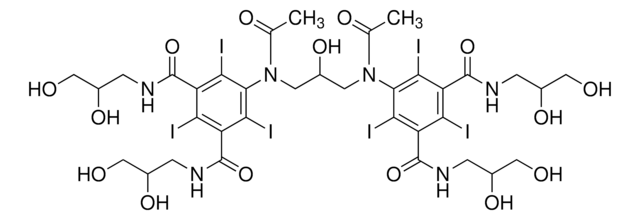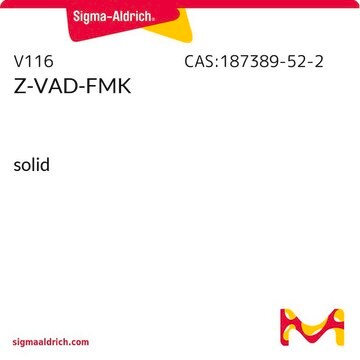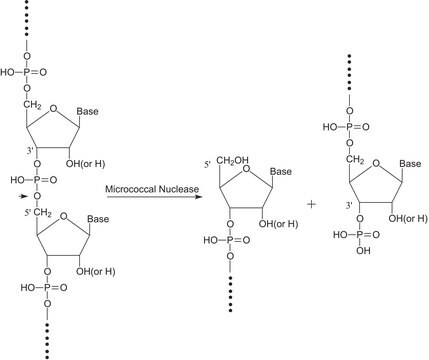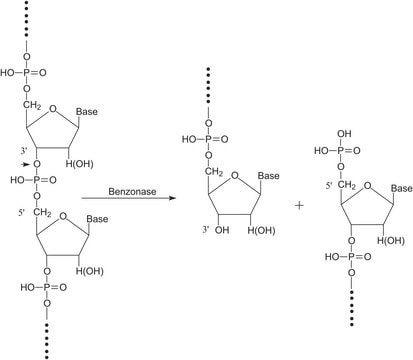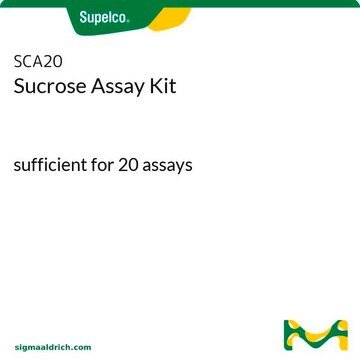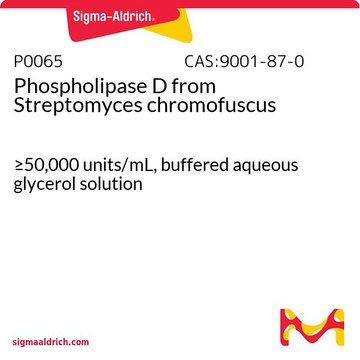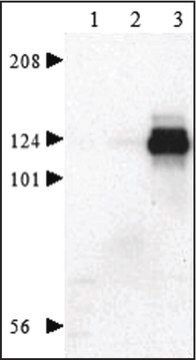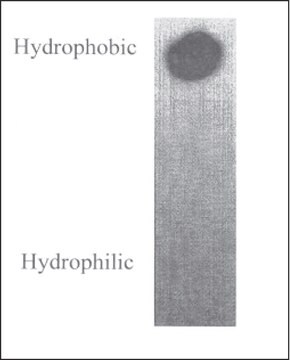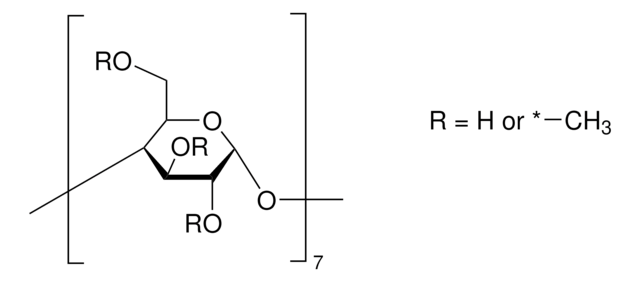CS0750
Caveolea/Rafts Isolation Kit
sufficient for 20 purifications
Iniciar sesiónpara Ver la Fijación de precios por contrato y de la organización
About This Item
UNSPSC Code:
12161503
NACRES:
NA.84
Productos recomendados
usage
sufficient for 20 purifications
shipped in
dry ice
storage temp.
−20°C
Application
The kit provides an easy method for obtaining fractions enriched with caveolea/rafts proteins from tissue culture cells. This method for the isolation of caveolae and rafts is based on the insolubility of these structures in ice cold non-ionic detergent Triton X-100. The kit includes all reagents for cells lysis, density gradient, and the isolation of caveolea/rafts protein enriched fraction, as well as two markers for caveolea/rafts compartments, anti-caveolin-1 and cholera toxin B subunit-peroxidase (CTB-HRP).
Biochem/physiol Actions
Caveolae and lipid rafts are important cholesterol and sphingolipid-rich structures that represent a subcompartment or microdomain of the plasma membrane and are implicated in cellular transport and signal transduction related events.
Solo componentes del kit
Referencia del producto
Descripción
- Lysis buffer 100 mL
- Cholera Toxin B Subunit, Peroxidase (CTB-HRP) 50 μg
- Protease inhibitor cocktail for use with mammalian cell and tissue extracts 1 mL
- Anti-Caveolin-1 antibody produced in rabbit 50 μL
- Triton X-100 2 mL
- OptiPrep Density Gradient Medium 100 mL
signalword
Danger
Hazard Classifications
Acute Tox. 4 Oral - Aquatic Acute 1 - Aquatic Chronic 1 - Eye Dam. 1 - Resp. Sens. 1 - Skin Irrit. 2 - Skin Sens. 1
Storage Class
10 - Combustible liquids
Elija entre una de las versiones más recientes:
¿Ya tiene este producto?
Encuentre la documentación para los productos que ha comprado recientemente en la Biblioteca de documentos.
Los clientes también vieron
Xing Wang et al.
PLoS pathogens, 13(9), e1006580-e1006580 (2017-09-29)
There is increasing consensus that males are more vulnerable than females to infection by several pathogens. However, the underlying mechanism needs further investigation. Here, it was showed that knockdown of androgen receptor (AR) expression or pre-treatment with 5α-dihydrotestosterone, the AR
Sheng-He Huang et al.
The Journal of biological chemistry, 286(40), 34761-34769 (2011-06-23)
Cryptococcus neoformans is a neurotropic fungal pathogen, which provokes the onset of devastating meningoencephalitis. We used human brain microvascular endothelial cells (HBMEC) as the in vitro model to investigate how C. neoformans traverses across the blood-brain barrier. In this study
Ambrose Jong et al.
Cellular microbiology, 10(6), 1313-1326 (2008-02-06)
Pathogenic yeast Cryptococcus neoformans causes devastating cryptococcal meningoencephalitis. Our previous studies demonstrated that C. neoformans hyaluronic acid was required for invasion into human brain microvascular endothelial cells (HBMEC), which constitute the blood-brain barrier. In this report, we demonstrate that C.
Chiung-Chun Huang et al.
Neuropsychopharmacology : official publication of the American College of Neuropsychopharmacology, 34(8), 1979-1992 (2009-02-13)
Neural adaptations in the medial prefrontal cortex (mPFC) are thought to be crucial in the development and maintenance of addictive behaviors. The mPFC receives a dense serotonergic (5-hydroxytryptamine, 5-HT) innervation from raphe nuclei and 5-HT exerts complex actions on mPFC
Richard G Carroll et al.
The Journal of biological chemistry, 293(15), 5509-5521 (2018-02-22)
Different immune activation states require distinct metabolic features and activities in immune cells. For instance, inhibition of fatty acid synthase (FASN), which catalyzes the synthesis of long-chain fatty acids, prevents the proinflammatory response in macrophages; however, the precise role of
Nuestro equipo de científicos tiene experiencia en todas las áreas de investigación: Ciencias de la vida, Ciencia de los materiales, Síntesis química, Cromatografía, Analítica y muchas otras.
Póngase en contacto con el Servicio técnico